




RICHARD FELLMAN
Iremember it vividly. The “fraternities” were strong and in existence in the fall of 1949, when I began high school at Central. I was asked to join Pi Tau Pi, which I did. RoNoh was the other “fraternity,” and there were three AZA groups: AZA “1, AZA “100, and AZA “1000. There were girls’ clubs, but they were not “se-
lective,” there was NFTI at Temple and USY at Beth El. There was a Jewish Youth Council as well, consisting of all of those clubs. Pi Tau Pi was small, about five boys for each year.
In early 1950, J. Arthur Nelson at Central issued the order, abolishing the “secret” clubs, and Pi and RoNoh were two of the See 1950s Youth Programming page 3
Youth Programming in the 1950s Voters Corner
PAM MONSKY
JCRC Assistant Director
The Civil Rights Committee of the Jewish Community Relations Council, chaired by Sara Rips, recently hosted Rachel Gibson, League of Women Voters Nebraska Vice President of Action, for a presentation of current trends in voting throughout our state, with a focus on early voting and election security. Sara said, “We are using portions, and in some cases all of our monthly meetings as educational opportunities to hear from community allies and agencies engaged in civil rights issues. So far, it has been a wonderful experience. Being a non-partisan agency allows us to forge new partnerships and ex-
Write With Us
ANNETTE VAN DE KAMPWRIGHT
Jewish Press Editor
We are pleased to announce ‘Write With Us,’ a new collaboration between the Nebraska Jewish Historical Society and the Jewish Press This Fall we welcome Liz Kay, Creative Writing Coordinator at Metro Community College. Liz will lead four writing workshops at our Staenberg Kooper Fellman Campus.
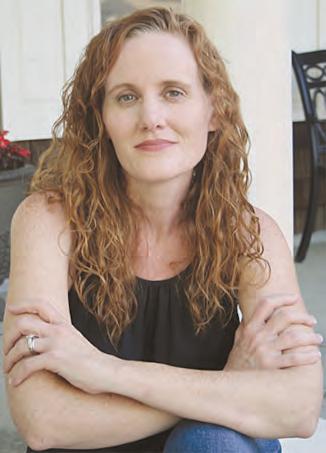
Workshops are scheduled for Aug. 6 and 13, and Sept. 5 and 19 from 5-7 p.m. Cost is $18 per single workshop, and $54 for all four sessions. Thanks to our generous donors, college students can attend for free. Registration will open in July. If you have wanted to write your family’s story, that great American novel, or you have always wanted to try your hand at poetry, this program is for you. Maybe you are already an accomplished writer, but you would benefit from being in a room with other writers. Perhaps you have convinced yourself you can’t write at all, but would love to try. Everyone, from absolute beginner to professional, is welcome to attend.
2024 Voters Corner
plore the missions and work of others, and we lean on the lessons and conversations we have in our service to the Omaha Jewish community.”
Nebraska has witnessed a significant rise in early voting in recent years. COVID and the permanent closure of in-person polling locations may have contributed to this shift in voter behavior, which reflects a preference for convenience and flexibility. Early voting allows Nebraskans to cast their ballots at designated polling places, drop boxes, or by mail
before Election Day, mitigating concerns about long lines and scheduling conflicts.
The Omaha Jewish community brings its unique perspectives and voting behaviors to the electoral arena. While our community is small, our impact on local politics and civic engagement is significant. It’s clear that Jewish Nebraskans hold democratic values dear. Our close-knit nature and collective identity foster a sense of solidarity and responsibility See Voters Corner page 2
During this process, we are hopeful to gather stories we can print in the Jewish Press and/or add to the NJHS archives. There are great stories in the Omaha Jewish community that have not yet been told in print. They are shared over dinner, during friend get-togethers, during the holidays, but they don't always get written down. Both the NJHS and the Jewish Press exist to tell those stories, and we want to offer people an opportunity to come share their stories with us. That does not mean you have to share what you write with the public—it is entirely up to you, the participant. However, your story is worth telling, and it can be hard to know where to start, so let us help you! Liz Kay holds an MFA from the University of Nebraska, where she was the recipient of both an Academy of American Poets Prize and the Wendy Fort Foundation Prize for exemplary work in poetry. Her See Write With Us page 2
JUNE 21, 2024 | 15 SIVAN 5784 | VOL. 104 | NO. 35 | CANDLELIGHTING | FRIDAY, JUNE 21, 8:42 P.M. w in the Kripke-Veret Collection Page 2 2024 Annual Meeting & Awards Pages 6 & 7 Shirley’s Kitchen Page 12 The Jewish Press WWW.OMAHAJEWISHPRESS.COM | WWW.JEWISHOMAHA.ORG SPONSORED BY THE BENJAMIN AND ANNA E. WIESMAN FAMILY ENDOWMENT FUND AN AGENCY OF THE JEWISH FEDERATION OF OMAHA REGULARS Spotlight 5 Voices 8 Synagogues 10 Life cycles 11 INSIDE
PITAUPI,1939: Back row: Bill Stiefler, left, Stuart Simon, Bud Barish, Ed Malashock, Alan Jacobs, Irv Malashock, Barton Greenberg, James Robinson and Yale Trustin; and front row: Richard Newman, left, Charles Rosenstock, Julie Cohn, Nick Newman and Arthur Kulakofsky.
Liz Kay
Voters Corner
New in the Kripke-Veret Collection
SHIRLY BANNER
JFO Library Specialist
JUVENILE:
The Promise by Bridget Hodder and Fawzia Gilani-Williams
A garden is a prayer. It is also a promise. In a Moroccan village, a Jewish boy and a Muslim boy are best friends. Jacob and Hassan play together every day in the cool shade of Jacob’s family garden. They take care of the garden together, watching the roses and the orange trees grow tall. When news of terrible things happening to Jews in Europe reaches their little village, Jacob’s family must leave Morocco. Hassan promises to care for their beloved garden. “While the garden lives, our friendship will never die,” Jacob says. Years pass until, one day, the prayer of the garden is answered. Inspired by a true story.
ADULT:
Don’t Forget to Write by
Sara Goodman Confino



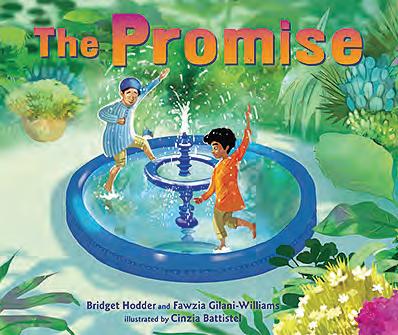



ilyn must make her choice for her future: return to the comfortable life she knows or embrace a risky, unknown path on her own.
The Boy with the Star Tattoo: A Novel by Talia Carner

In 1960, a young woman discovers a freedom she never knew existed in this exhilarating, funny, and emotional novel by the bestselling author of She’s Up to No Good
When Marilyn Kleinman is caught making out with the rabbi’s son in front of the whole congregation, her parents ship her off to her great-aunt Ada for the summer. If anyone can save their daughter’s reputation, it’s Philadelphia’s strict premier matchmaker. Either that or Marilyn can kiss college goodbye.
To Marilyn’s surprise, Ada’s not the humorless septuagenarian her mother described. Not with that platinum-blonde hair, Hermès scarf, and Cadillac convertible. She’s sharp, straighttalking, takes her job very seriously, and abides by her own rules... mostly. As the summer unfolds, Ada and Marilyn head for the Jersey shore, where Marilyn helps Ada scope out eligible matches for anyone but Marilyn, that is.
Because if there’s one thing Marilyn’s learned from Ada, it’s that she doesn’t have to settle. With the school year quickly approaching and her father threatening to disinherit her, Mar-


From acclaimed author of The Third Daughter comes an epic historical novel of ingenuity and courage, of love and loss, spanning postwar France when Israeli agents roamed the countryside to rescue hidden Jewish orphans—to the 1969 daring escape of the Israeli boats of Cherbourg.
1942: As the Vichy government hunts for Jews across France, Claudette Pelletier, a young and talented seamstress and lover of romance novels, falls in love with a Jewish man who seeks shelter at the château where she works. Their whirlwind and desperate romance before he must flee leaves her pregnant and terrified.
When the Nazis invade the Free Zone shortly after the birth of her child, the disabled Claudette is forced to make a heartbreaking choice and escapes to Spain, leaving her baby in the care of his nursemaid. By the time Claudette is able to return years later, her son has disappeared. Unbeknown to his anguished mother, the boy has been rescued by a Youth Aliyah agent searching for Jewish orphans.
1968: When Israeli naval officer Daniel Yarden recruits Sharon Bloomenthal for a secret naval operation in Cherbourg, France, he can’t imagine that he is the target of the agenda of the twenty-year-old grieving the recent loss of her fiancé in a drowned submarine. Sharon suspects that Danny’s past in Youth Aliyah may reflect that of her mysterious late mother and she sets out to track her boss’s extraordinary journey as an orphan in a quaint French village all the way to Israel.
As Danny focuses on the future of his people and on executing a daring, crucial operation under France’s radar, he is unaware that the obsessed Sharon follows the breadcrumbs of clues across the country to find her answers. But she is wholly unprepared for the dilemma she must face upon solving the puzzle.
Continued from page 1 towards civic participation, a deeply embedded Jewish value. This communal ethos contributes to higher levels of voter turnout and engagement, including in early voting initiatives. According to the last Omaha Jewish Community Survey conducted in 2017, compared to Jewish communities across the country, 98% of Jewish Omahans are registered to vote. Perhaps the most impressive statistic is that 100% of Jewish Omahans under the age of 35 are registered. While much talk about trust in the electoral process continues, the Nebraska Secretar y of State’s website provides factual information in response to election fraud claims that persist following the 2020 General Election. Groups and individuals outside of Nebraska continue to create and share election fraud misinformation. The claims are spread further in Nebraska by election “accuracy” groups. To this day, the Secretary of State’s office has not found any information surrounding Nebraska’s handling of the 2020 General Election that would indicate voter fraud. The information can be found at sos.nebraska.gov
If you would like to view Rachel Gibson’s presentation, please contact Pam Monsky, JCRC Assistant Director (pmonsky@jewishomaha.org or 402.334.6572), for the link. You can find out more about the League of Women Voters of Greater Omaha by visiting www.lwvgo.org
The Jewish Community Relations Council (JCRC) is dedicated to working in common cause to enhance cooperation with other religious, racial, ethnic, and civic groups to foster a just, democratic and pluralistic society as well as promote the security of Israel and Jews everywhere. Guided by Jewish values, the JCRC is a nonpartisan agency that advocates, educates, collaborates, and mobilizes action on issues important to the Jewish Community and the greater community.
Write With Us
Continued from page 1 poems have appeared in such journals as Beloit Poetry Journal, RHINO, Nimrod, Willow Springs, The New York Quarterly Iron Horse Literary Review Redactions, and Sugar House Review. She is the author of Something to Help Me Sleep, The Witch Tells The Story And Makes It True and Monsters: A Love Story
This program is made possible through the generous support of the Shirley and Leonard Goldstein Supporting Foundation. Please stay tuned for more information!


2 | The Jewish Press | June 21, 2024 News LOCAL | NATIONAL | WORLD PROMOTE YOUR BUSINESS Contact Howard Kutler 402.334.6559 | hkutler@jewishomaha.org The Jewish Press ADVERTISE IN THE JEWISH PRESS Reach the Jewish communities in Omaha, Lincoln, Council Bluffs and surrounding areas. Tritz Plumbing Inc. 402-894-0300 www.tritz.com family owned and operated since 1945 repair • remodelcommercial • residential CALL the JFO’s Safety and Security Team 402-334-6446 EMAIL JCRCreporting@jewishomaha.org SCAN the QR code below to fill out the Incident Reporting Form If you experience antisemitism, there are ways to report an incident or hate crime: If you see something, say something. IF THIS IS AN EMERGENCY, MOVE TO A SAFE AREA AND DIAL 9-1-1 We work directly with law enforcement, Secure Communities Network, and the Anti-Defamation League. EXPERIENCE ANTISEMITISM? Visit us on facebook: www.facebook.com/ShalomahaPress
1950s Youth Programming
Continued from page 1 main targets. They both closed. I think the gentile clubs, including Les Habouix, somehow evaded J. Arthur’s decree and continued secretly. To my knowledge, no Jews were ever asked to join it. There was total separation by religion.
The seniors in Pi merely moved on, as did the juniors, and that included Larry Albert and Howard Vann.The freshmen, and that included me, decided to form a new club under the rules promulgated by J Arthur, and we formed Rayim.
None of the juniors or seniors joined, only a small number of sophomores did, but most of the freshman did. Jerry Tuner and I were central in forming Rayim, and I was elected president and served during the organization’s first and second year. Ray Somberg followed me as president.
Rayim became the largest club in the Jewish Youth Council in the early 1950s, and had impressive athletic teams, won strongly contested skit competitions at the old JCC’s auditorium, and participated in Jewish activities. There was a group called ‘The Independents,’ which was officially not an organization, but entered teams and competed.
attended Central High School, and the JCC was right across the street on the corner of 20th and Dodge. When Central was out about 3:30 in the afternoon, scores of Jewish youths went directly to the J and mingled with friends. There were a few
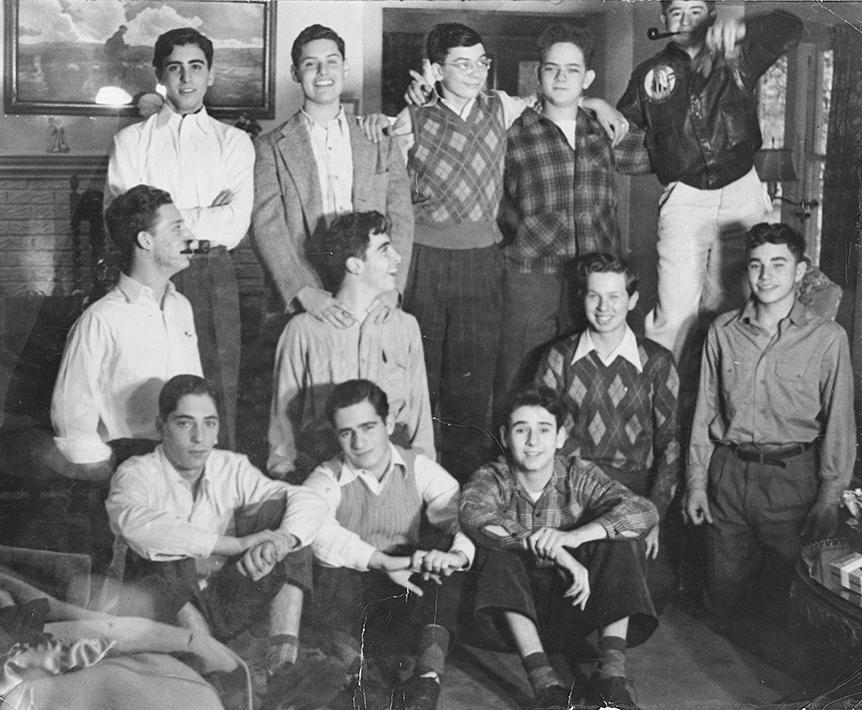
There were two large girls’ clubs, BBG and one sponsored by Council, and soon another, Debka Debs, was formed and then came Edair.
During the later 1950s, AZA became stronger than Rayim. I remember as president of Rayim attempting to have it affiliate with AZA to obtain the national benefits but I was continually defeated. (It was my first major political defeat, but there were to be many more).
The synagogue clubs were not strong; they were actually sort of secondary during the 1950s. But these Youth Council Clubs were strong.
The Federation served a major role. During the 1950s it had a full-time youth director, Phil Gitlin, who became a professor of social work at the University of Chicago. Next was Phil Chapman, who left to take a major job with the Los Angeles Federation, followed by Sherman Poska, who everyone who was a youth in the 1950s will recall fondly.
In those days I’d guess at least 90 percent of all Jewish youth
classes, poorly attended, except by those who enjoyed studying Jewish subjects; there were sports, socializing of all types, and knowing each other. The divisions between youth who belonged to the different synagogues were far less than they became when the “J” at 20th and Dodge closed.
A Jewish Youth Directory was published every year, and it listed every Jewish high school student by their club membership. It was a marvelous source book for dates... who to call, and where the boy who called belonged, who his friends were, and other important information.
Through the years, the old secret fraternities disappeared, as did Rayim. The AZA groups shrunk, but remained strong, and B’nai B’rith remained a force. The synagogue groups seemed to take turns, with the addition of a group in Beth Israel, together with those in Temple Israel and Beth El, in a sort of informal rotation of weakness and dominance.
The change of high school enrollment, the multiplicity of neighborhoods, and the significant changes in society have brought many changes to Jewish youth programing.
Rachele Fruit for President
ROBERT OSBORNE
Rachele Fruit is the Jewish woman running for the US Presidency on the Socialist Workers Party ticket. Since the First World War and the Espionage Act, the United States has had a very contentious relationship with Socialists and especiallyactive-Jews. 2024 is proving, as have the previous eight years, to be contentious with ideologies focused on peace, workers rights, progress, and confrontations with capitalism. Contentious too with the overt and passionate resurgence of racist, bigoted, and hate-filled groups and individuals. This piece has excerpts written by Rachele Fruit for the April 1, 2024, Vol. 88/No. 13 edition of The Militant
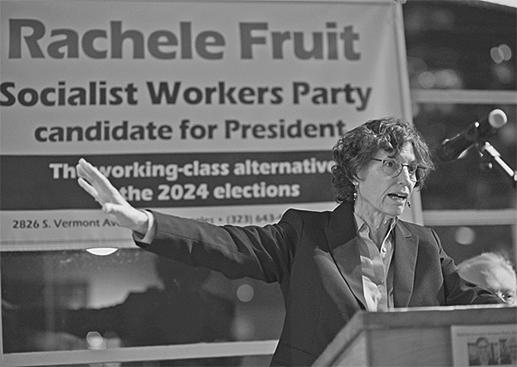
The Militant is the newspaper of the Socialist Workers Party.
Rachele Fruit is running “alongside SWP candidates around the country... a working-class alternative to Biden, Trump, Kennedy and all the capitalist candidates.” Fruit continues, “Throughout our [Socialist Workers Party] history we have sought to advance a road to unite working people in the fight against our common oppressors. Our starting point is the class interests and solidarity of workers of whatever nationality or religious belief.”
“The worldwide explosion of Jew-hatred since Hamas’ Oct. 7 pogrom in Israel shows that the need for a refuge today is not an abstract question. Israel was founded because the imperialist rulers in London and Washington slammed shut their borders to those fleeing the rise of the Nazis… Israel must have a right to defend itself from destruction.”
On Israel, she writes, “The war between Israel and Hamas
is not about the Palestinian national struggle. Israel is not at war with the Palestinian people. It is fighting to eliminate Hamas whose leaders say openly their reason for being is to kill Jews and destroy Israel.” She says the capitalist government in Israel is the only one to truly support the effort of Israel as “no other government on earth makes that commitment... Where are the calls by capitalist governments and their mouthpieces at the United Nations on Hamas to release the hostages it seized? Or to demand surrender?”
Fruit makes it clear that Hamas’ origins are with the Nazis and that “incipient fascist currents emerged in the U.S. at the same time, like Mayor Frank Hague in New Jersey City, New Jersey, who unleashed thugs to crush unions there.” She believes that the labor movement must go hand-in-hand with the Jewish struggle and “stand up to Jew-hatred today, a central question for unions worldwide.
“Workers and unions must organize and act against all moves to slander, scapegoat and attack Jews. The working class is the only force capable of taking on and defeating reactionary Jew-hating forces in the U.S. and worldwide. It’s here in the U.S. – home to the rulers of the world’s last empire – that the battle against Jew-hatred will be decisive.
“As the world capitalist economic crisis brings devastation and war to millions, the fight over which class will rule is the central question for working people everywhere. Combating Jew-hatred has a special place in this fight.” (The Militant, Fruit, April 1, 2024)








The Jewish Press | June 21, 2024 | 3 (402) 968-7743 mkirchhoff1949@gmail.com INDIVIDUALS GROUPS FAMILIES EVENTS WEDDINGS B’NAI MITZVAHS SENIOR PICTURES
PITAUPI,1947: Back row: Alan Tully, left, Dick Commer, Don Nogg, Jerry Schwartz and George Wright; middle row: Michael Kulakofsky, left, Stewart Tully, Alvin Ross and Bob Malashock; and front row: Orvel Milder, left, Richard Goldman and Jack Cohen.
Rachele Fruit


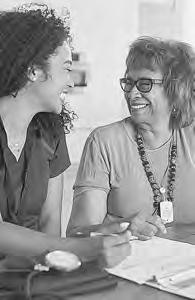



PAM MONSKY
Save the Date for Pride 2024
JCRC Assistant Director
Bring your friends and family and join the Jewish Federation of Omaha, JCRC, the JFO DEIA Committee, Beth El Synagogue, B’nai Israel and Temple Israel as we celebrate Heartland Pride as a Jewish community on Saturday, July 13!
Temple Israel Pride chairperson Robert Friedman noted, “This event is a beautiful partnership between local Jewish organizations and the synagogues! We invite everyone to come out and show their pride!”
The schedule is as follows:
FRIDAY, JULY 12
6 p.m.: Pride Shabbat and Oneg at Temple Israel.
SATURDAY, JULY 13
8 a.m.: Rise and Pride Shabbat service at the Brandeis
Building. Breakfast provided by Beth El Synagogue.
9 a.m.: Walk or drive to the designated parade position (we will receive our spot number about a week before the parade). 9:30 a.m.: Line up 10 a.m.: Parade begins 10:30 a.m.-ish: Parade ends
Make sure to bring sunscreen, hats and other heat repelling items.
To join the Jewish Omaha Pride contingent, please sign up by contacting Pam Monsky, pmonsky@jewishomaha.org, 402.334.6572. Temple is taking reservations at https://www. templeisraelomaha.com/form/pride-2024.html. All registered participants will receive an invitation to a De-escalation and Safety Training meeting one week before the Heartland Pride Parade.
A new movie about Diane von Furstenberg
JACKIE
HAJDENBERG
Diane von Furstenberg’s design business was stagnating in the 1980s when she got a call that her mother had had a nervous breakdown in Europe. The breakdown, her mother’s companion said, may have been triggered by hearing German men speaking loudly. Her mother was cowering under a hotel concierge’s desk.
Von Furstenberg, newly divorced and worrying about the future of her dress label, immediately headed to Europe with her children. She knew that her mother had survived the Holocaust, but on that trip she learned awful details about Lilli’s experience in Auschwitz. Arriving home in New York, von Furstenberg was invited to give a speech to the Anti-Defamation League at the Pierre Hotel and surprised herself by speaking about being the daughter of a Holocaust survivor.
omaha.org
the camps were liberated in 1945.
Nahmias lost so much weight while imprisoned by the Nazis that doctors told her it would be unsafe to have a child. But Nahmias and Halfin were married in 1945, and Diane was born in 1946. (A younger brother, Philippe, came along in 1952.)

“To hear myself saying that was so shocking to me,” von Furstenberg recalls in a new documentary about her life. “I started to tremble. I couldn’t believe that I said that. And I remember I walked back home. And I was in shock. I had realized who I was. And where I came from. And before that I had never done that.”
The moment is a pivotal one in Diane von Furstenberg: Woman in Charge, which explores the rise of von Furstenberg’s brand, her multiple love affairs — including her marriage to a half-German prince — the AIDS crisis, and her identity as a Jewish woman and child of a Holocaust survivor.
The film, which premiered as the headliner at the prestigious Tribeca Film Festival and begins streaming on Hulu June 25, features interviews with major players from von Furstenberg’s glitzy life as the inventor of the wrap dress, including Oprah Winfrey, Christian Louboutin and Marc Jacobs. Hillary Clinton, Gloria Steinem and Fran Lebowitz are also featured, attesting to von Furstenberg’s role as a pioneering woman in the fashion industry.
But the film also includes handwritten letters from her mother written during the Holocaust and footage of von Furstenberg as she visits the Kazerne Dossin Holocaust museum in Brussels. In it, von Furstenberg argues that all of her accomplishments have their roots in her mother’s experience and reaction to it.
Von Furstenberg’s mother was born Lilli Nahmias in Thessaloniki, Greece, to a Sephardic Jewish family. The Nahmias family immigrated to Belgium in 1930, and 10 years later, Lilli met her future husband Simon Halfin and joined the Resistance with her parents. She was caught by the Nazis and sent to Auschwitz in 1944. Nahmias survived the conditions there for 13 months as well as a death march to Ravensbrück before
“Just the fact that I was born was a victory,” von Furstenberg says in the film. “She used to say, ‘God saved me so that I can give you life. By giving you life, you gave me my life back. You are my torch of freedom.’”
Lilli Halfin’s parenting style, von Furstenberg says, reflected the lessons she took from the Holocaust.
“My mother was very tough when I was a little girl,” she said. “She wanted me to be independent, no matter what. She didn’t want me to be a victim, never wanted me to be afraid, and she always pushed me. I don’t think my mother ever said, ‘Be careful.’”
Being headstrong led to the major turning points in von Furstenberg’s life and career, including when, at 18, she met and soon married Prince Egon von Furstenberg, a Swiss-born socialite and banker from a German aristocratic family who introduced the middle class Jewish girl to the European jetset of the 1960s.
Egon’s father Tassilo attended the ceremony, but not the reception. According to Gioia Diliberto, biographer and author of Diane von Furstenberg: A Life Unwrapped, who was featured in the film, Tassilo told a friend of Diane’s, “I don’t know why Egon is marrying this dark little Jewish girl.”
The Diane von Furstenberg the world came to know emerged after she moved to the United States in 1970. (Von Furstenberg and her husband Egon separated soon after, and since 2001 she has been married to the Jewish businessman Barry Diller.) Her dresses became a symbol of the working woman for decades, changing the perception of what liberated women could look like in a professional setting. The brand became known for its vibrant patterns and is still recognizable as such today.
ORGANIZATIONS
4 | The Jewish Press | June 21, 2024 FULL-TIME SALES POSITION Interested? Send
cannot
meet you! The Jewish Press is looking for someone to join our team The Jewish Press Requirements:
Previous experience in a sales-related role is • a plus • Great customer service skills
Excellent written and verbal communication • skills The Passion of Caregiving KELLAH HOME CARE 402-706-6894
your application to Avandekamp@jewish
today. We
wait to
•
•
www.kellahhomecare.com
B’NAI B’RITH
The award-winning B’NAI B’RITH BREADBREAKERS speaker program currently meets Wednesdays via Zoom from noon to 1 p.m. Please watch our email for specific information concerning its thought-provoking, informative list of speakers. To be placed on the email list, contact Breadbreakers chair at gary.javitch@gmail.com
BREADBREAKERS
Diane von Furstenberg. Credit: Wikimedia Commons
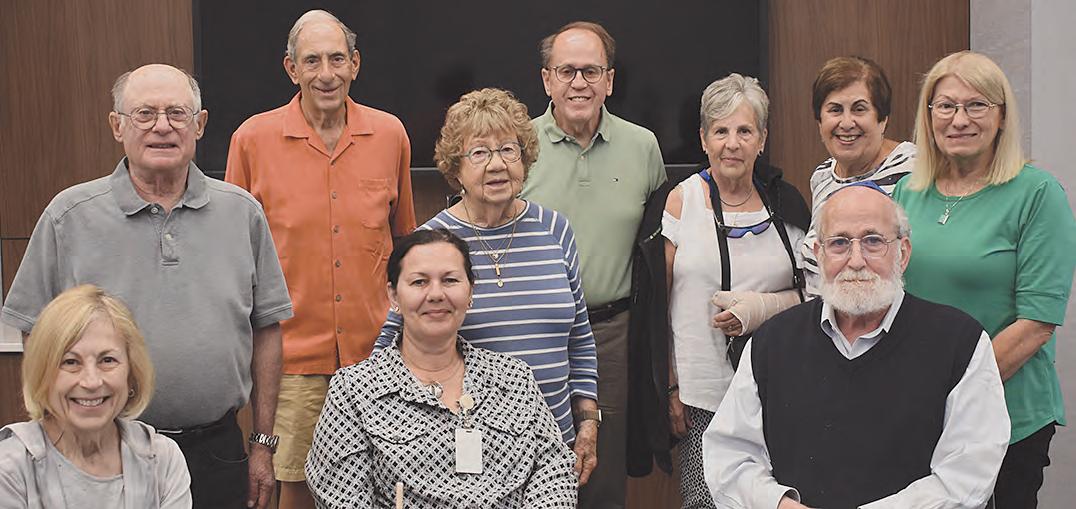
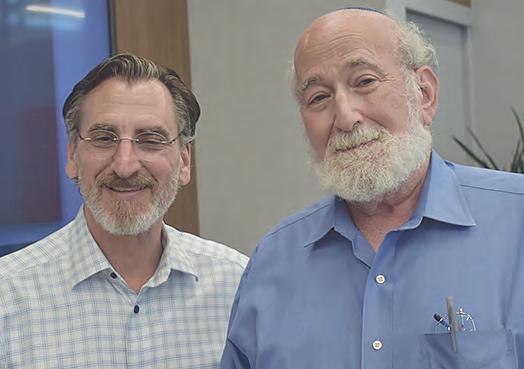
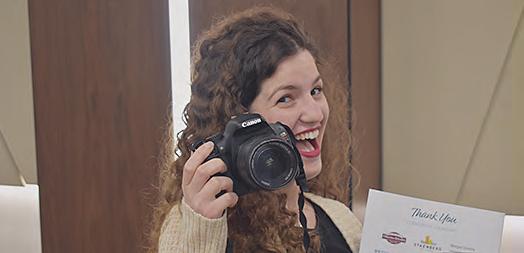
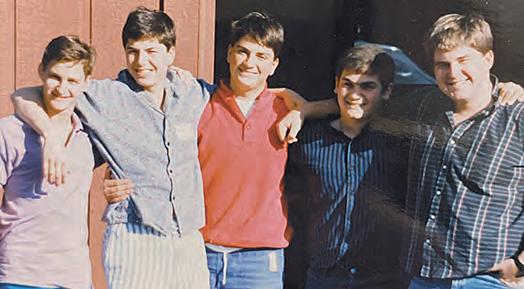
and now.

SP O TLIGHT
PHOTOS FROM RECENT JEWISH COMMUNITY EVENTS
SUBMIT A PHOTO: Have a photo of a recent Jewish Community event you would like to submit? Email the image and a suggested caption to: avandekamp@jewishomaha.org

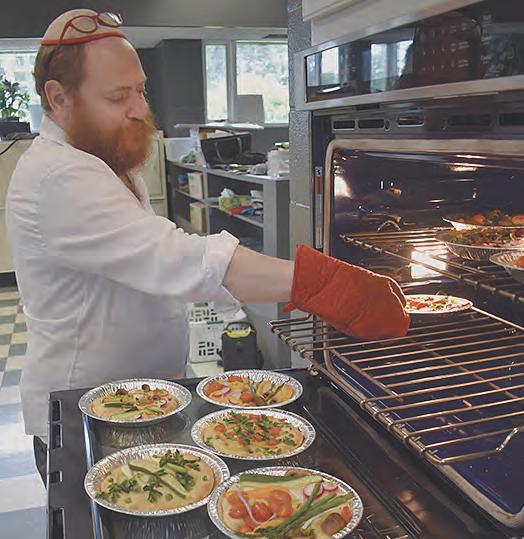
GENEROUSLY SUPPORTED BY
Left, right and below: The Cooking Club Lunch Clutch is a new, tasty and meaningful initiative from Chabad. Every first Tuesday of the month, new recipes will be shared for anyone who’s interested.
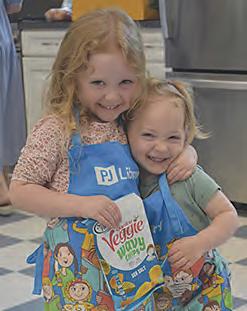

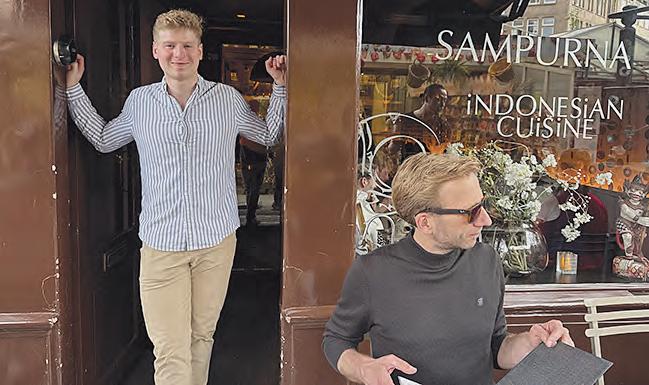


Above, below and bottom: The Rose Blumkin Jewish Home participated in Rabbi Telushkin’s Tapestry: A Celebration of Jewish Learning to discuss Jewish humor’s history, insights, and irony. Residents enjoyed the program, and Don Nogg stated it was enjoyable to learn the background of Jewish humor, which is very funny stuff. Resident May Kaiman was thrilled to meet Rabbi Telushkin as she often quoted from his books during her Philosophy class when she taught at UNO. Thank you to Rabbi Telushkin and all the organizers, especially Naomi Fox, for scheduling this humorist program.
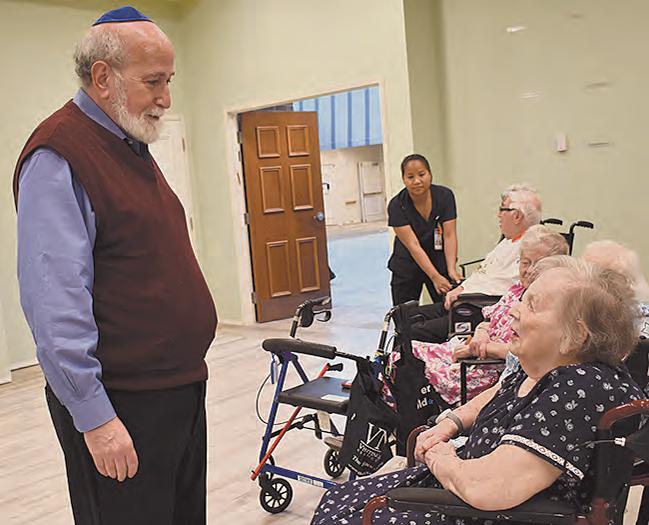
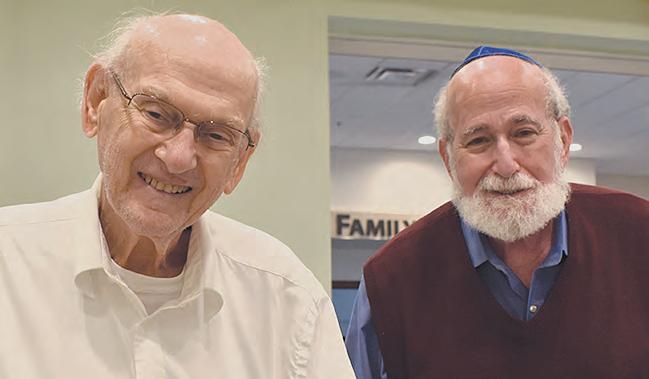
The Jewish Press | June 21, 2024 | 5
Above: Danny Denenberg during a recent trip (with his mom Tippi) to Amsterdam.
Below: A perfect day for a bike ride around the JCC campus.
Then
Above: Then: Scott Meyerson, left, Rabbi Yoshi (formerly Josh Zweiback), Marty Cohen, Trenton Magid and Jim Simon-who has the original photo and Now: below: Marty Cohen, left, Jim Simon, Scott Meyerson, Trenton Magid and Rabbi Yoshi Zweiback.
Below: Our Shlicha Mika Mizrahi enjoys herself at the Jewish Federation of Omaha Award Night and Annual Meeting.
Top: The Jewish Press advisory board and above: Bob Goldberg with Rabbi Joseph Telushkin.
2024 Annual Meeting & Awards
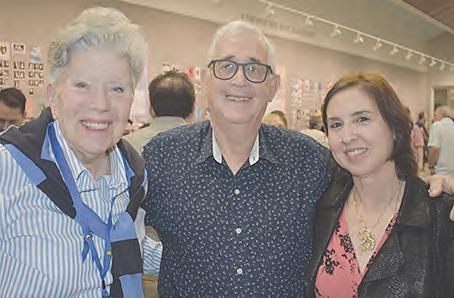
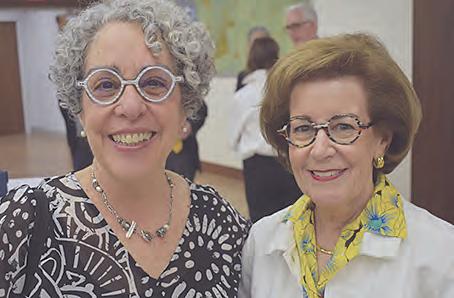

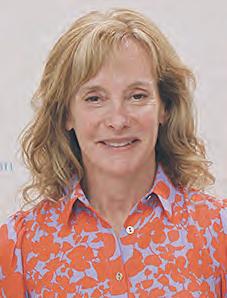
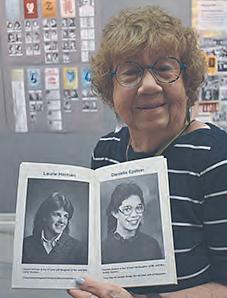

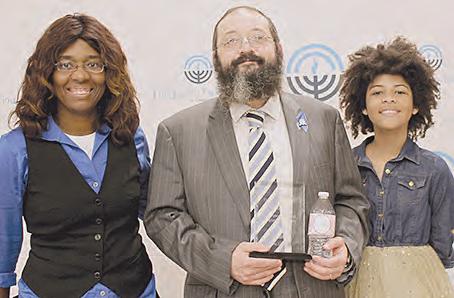
Monday, June 3, the Jewish Federation of Omaha held its Award Night and Annual Meeting. Community members gathered in the Alan J. Levine Theater and the Shirley and Leonard Goldstein Community Engagement Venue. An important part of the evening was honoring our volunteers, including our Humanitarians of the Year. Please stay tuned; we will have more photos from this evening in a few short weeks!
1: Jane Rips, Marty Ricks, and JFO Board President Nancy Schlessinger; 2: Ellie Batt and Carol Bloch; 3: Jenn Tompkins, Susie and Marvin Cohn; 4: Shayna Ray; 5: Helen Epstein; 6: Becca Groothuis and Deb Goldstein Baum; 7: Sarah Abrahamson, Yosef Seigel and daughter, Ella; 8: Dana Wear, Marvin and Susie Cohn, Nikki Cohn, Joe Knepell, and Ducky Milder; 9: Adria Tipp and Mika Mizrahi; 10: Humanitarians of the Year Kathy Goldstein, Andi and Donald Goldstein, and Gail Raznick; 11: Rabbi Mendel Katzman, Alan Tipp and Joe Fischer; 12: Ben Justman and Jeannette Gabriel; 13: Vicki Perlmeter and Linda Novak; 14: Nick Lemek and Tori Haussler; 15: Dick Zacharia and Donald Goldstein; 16: Paul Epstein and Steve Bloch; 17: Bonnie Levinger, Jordana Glazer, Steve Levinger and John Glazer; 18: Annie Rifkin, Jayme David and Deb Goldstein Baum; 19: Kathy Goldstein and Bruce Friedlander; 20: Nancy Schlessinger; 21: Lynne Saltzman and Ida Banner; 22: Anna Mosenkis and Helen Epstein; 23: Bruce and Margie Gutnik with their grandchildren; 24: Jody Malashock, Richard Goedeken and Buzz Malashock; 25: Bruce Friedlander and Jay Katelman; 26: Jenny Meyerson and Carol Bloch; 27: Laurie Peatrowsky, Eric Shivvers and Stacie Metz; 28: Mika Mizrahi and Jill Idelman; 29: Sonia and Adria Tipp; 30: Ron and Pam Feldman; 31: Becca Groothuis, Kathy Goldstein, Andi and Donald Goldstein, Gail Raznick and Deb Goldstein Baum; 32: Rachel, Alan and Debbie Kricsfeld, 33: Shayna Ray, Jennine and Marvin Goldberg and Bennett Ray; 34: Gail Raznick and Bruce Friedlander; 35: David, Howard and Donald Goldstein; 36: Brett Castinado and Lilly Phillips; 37: Jerry Hoberman and Steve Levinger; 38: Annual Meeting attendees; 39: Richard Heyman, Betsy Baker and Mary Bernstein; 40: Andi Goldstein and Lenore Ross; 41: Jon Meyers with Tina and Joe Meyers; and 42: Jay Gordman and Andie Gordman.


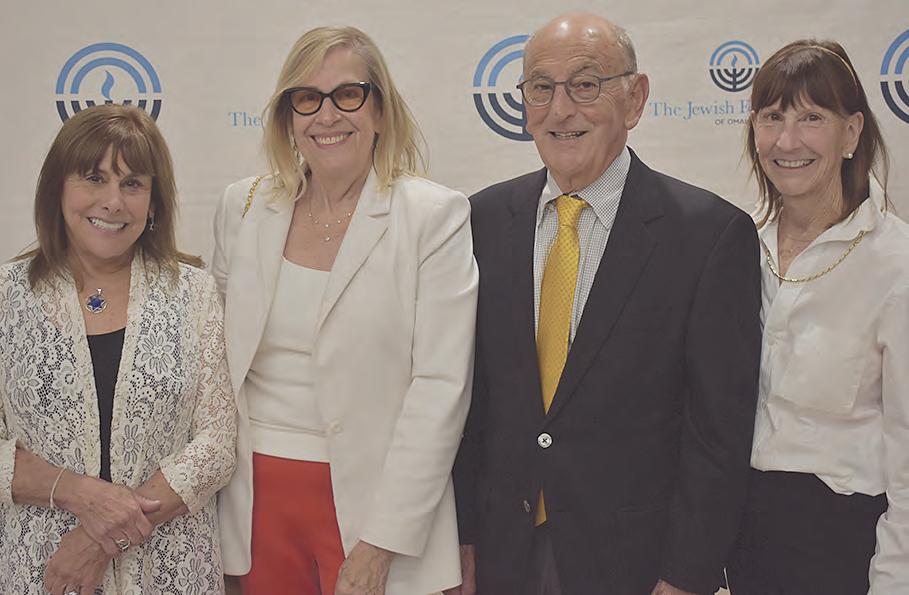

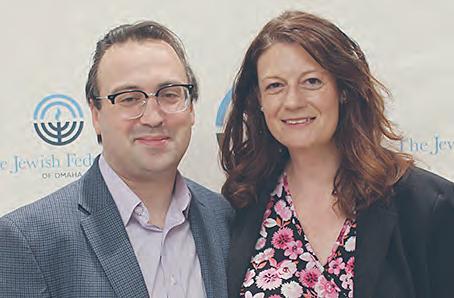
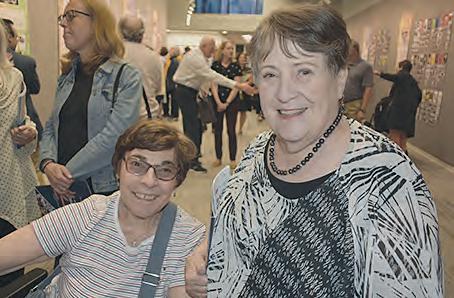

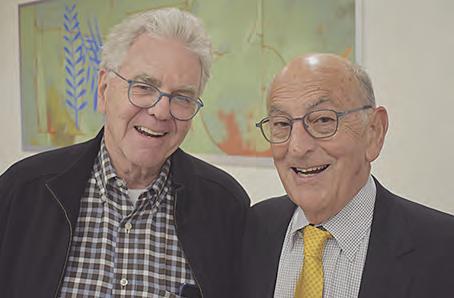

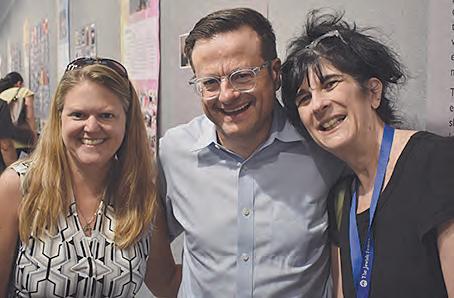


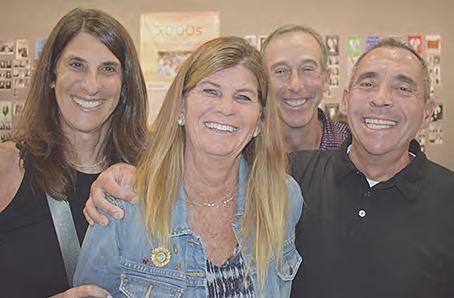

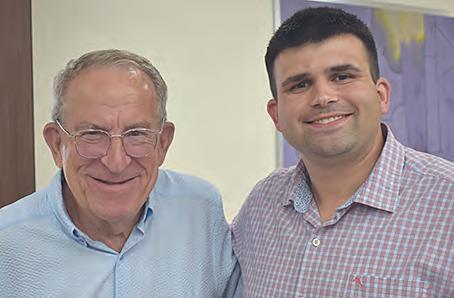
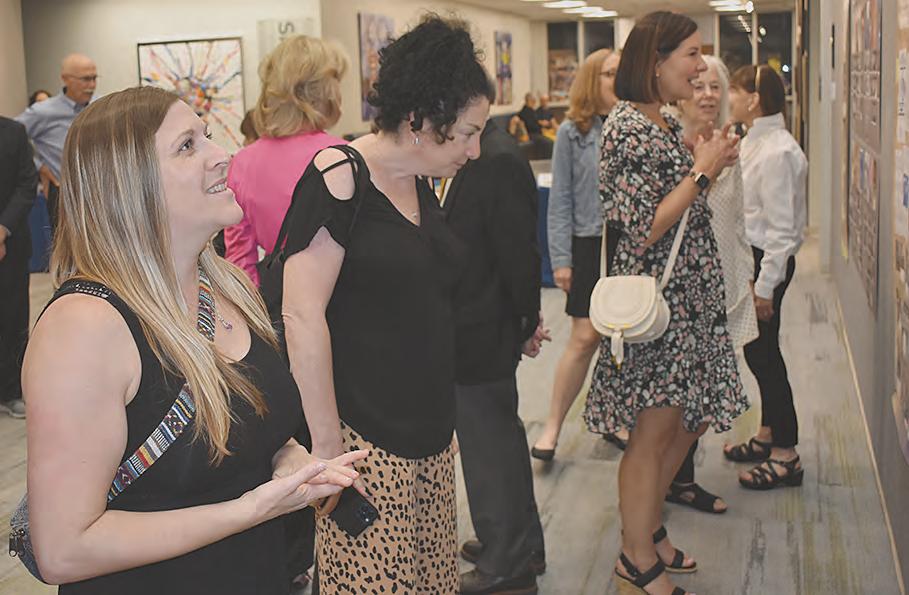
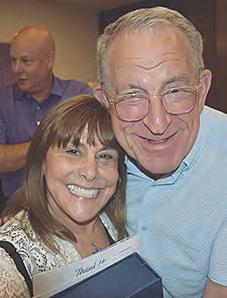
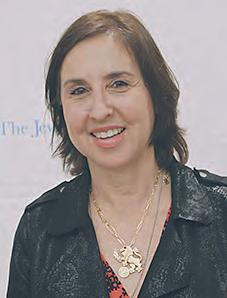
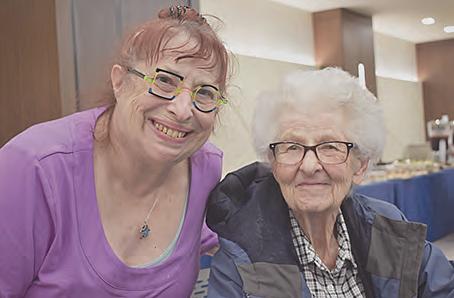
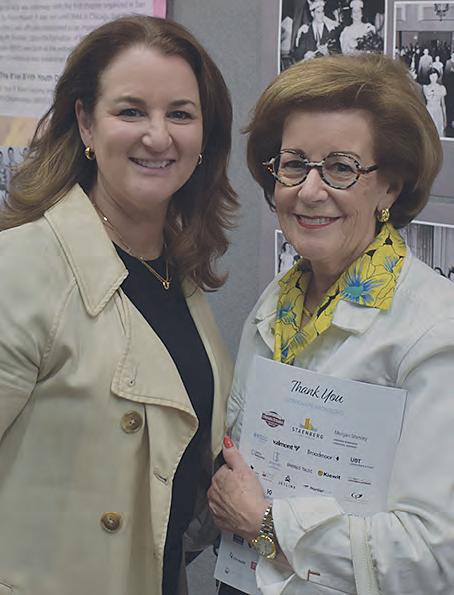
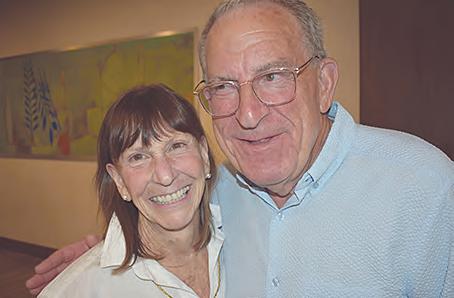
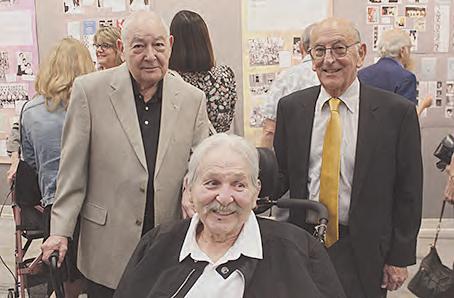
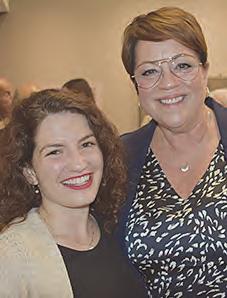
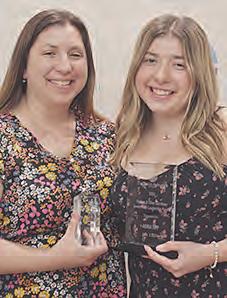
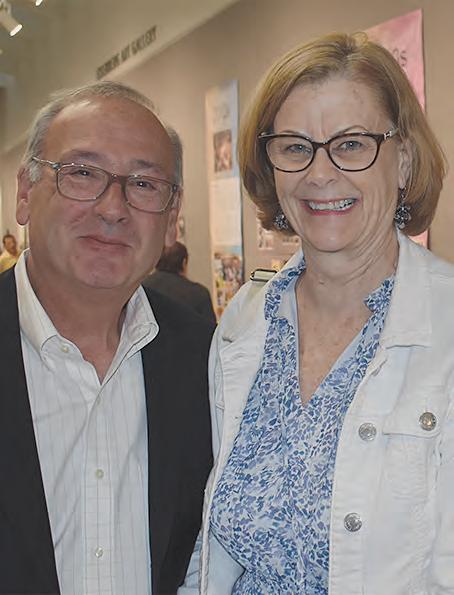

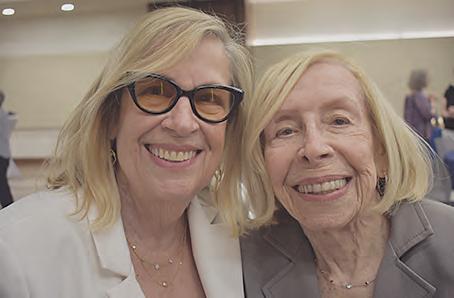

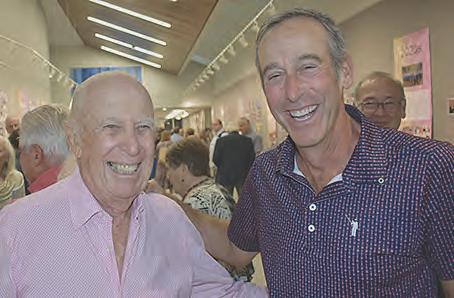

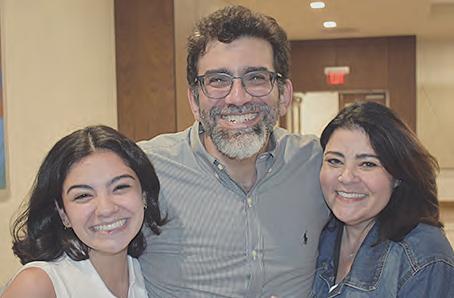
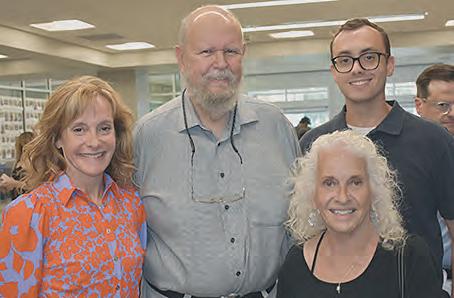


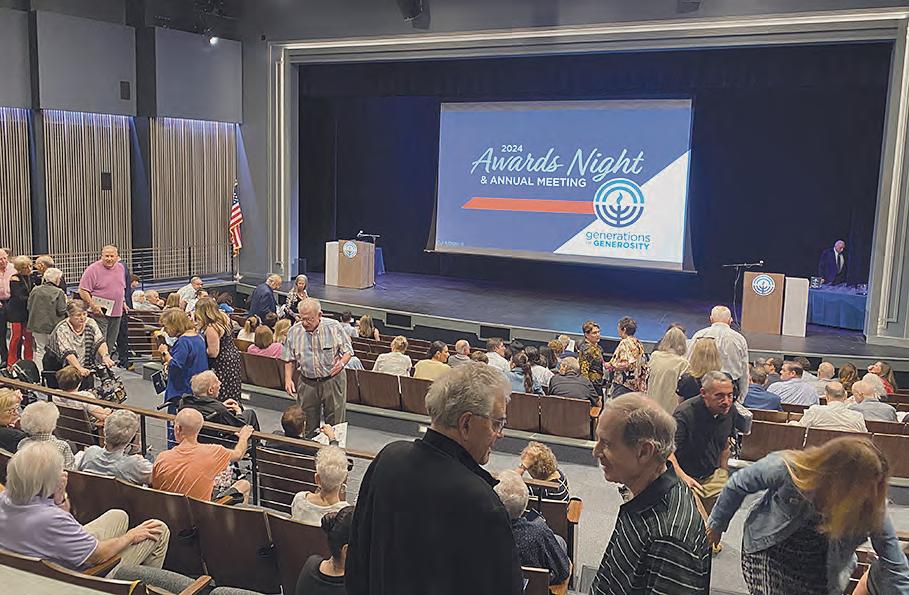
The Jewish Press | June 21, 2024 | 7 6 The Jewish Press June 21, 2024
1 2 3 45 6 79 8 10 11 12 13 14 15 17 1920 2126 25 24 2227 2829 30 31 32 33 34 35 37 37 38 39 40 41 1842 36 23
16
Voices
The Jewish Press
(Founded in 1920)
Margie Gutnik
President
Annette van de Kamp-Wright
Editor
Richard Busse
Creative Director
Howard Kutler
Advertising Executive
Lori Kooper-Schwarz
Assistant Editor
Gabby Blair
Staff Writer
Sam Kricsfeld
Digital support
Mary Bachteler
Accounting
Jewish Press Board
Margie Gutnik, President; Abigail Kutler, Ex-Officio; Helen Epstein; Andrea Erlich; Seth Feldman; David Finkelstein; Ally Freeman; Mary Sue Grossman; Chuck Lucoff; Suzy Sheldon; Joseph Pinson and Larry Ring.
The mission of the Jewish Federation of Omaha is to build and sustain a strong and vibrant Omaha Jewish Community and to support Jews in Israel and around the world. Agencies of the JFO are: Institute for Holocaust Education, Jewish Community Relations Council, Jewish Community Center, Jewish Social Services, Nebraska Jewish Historical Society and the Jewish Press Guidelines and highlights of the Jewish Press, including front page stories and announcements, can be found online at: www.jewishomaha.org; click on ‘Jewish Press.’ Editorials express the view of the writer and are not necessarily representative of the views of the Jewish Press Board of Directors, the Jewish Federation of Omaha Board of Directors, or the Omaha Jewish community as a whole. The Jewish Press reserves the right to edit signed letters and articles for space and content. The Jewish Press is not responsible for the Kashrut of any product or establishment.
Editorial
The Jewish Press is an agency of the Jewish Federation of Omaha. Deadline for copy, ads and photos is: Thursday, 9 a.m., eight days prior to publication. E-mail editorial material and photos to: avandekamp@jewishomaha.org ; send ads (in TIF or PDF format) to: rbusse@jewishomaha.org
Letters to the Editor Guidelines
The Jewish Press welcomes Letters to the Editor. They may be sent via regular mail to: The Jewish Press, 333 So. 132 St., Omaha, NE 68154; via fax: 1.402.334.5422 or via e-mail to the Editor at: avandekamp@jewishomaha.org.
Letters should be no longer than 250 words and must be single-spaced typed, not hand-written. Published letters should be confined to opinions and comments on articles or events. News items should not be submitted and printed as a “Letter to the Editor.”
The Editor may edit letters for content and space restrictions. Letters may be published without giving an opposing view. Information shall be verified before printing. All letters must be signed by the writer. The Jewish Press will not publish letters that appear to be part of an organized campaign, nor letters copied from the Internet. No letters should be published from candidates running for office, but others may write on their behalf.
Letters of thanks should be confined to commending an institution for a program, project or event, rather than personally thanking paid staff, unless the writer chooses to turn the “Letter to the Editor” into a paid personal ad or a news article about the event, project or program which the professional staff supervised. For information, contact Annette van de Kamp-Wright, Jewish Press Editor, 402.334.6450.
Postal
The Jewish Press (USPS 275620) is published weekly (except for the first week of January and July) on Friday for $40 per calendar year U.S.; $80 foreign, by the Jewish Federation of Omaha. Phone: 402.334.6448; FAX: 402.334.5422.
Periodical postage paid at Omaha, NE. POSTMASTER: Send address changes to: The Jewish Press, 333 So. 132 St., Omaha, NE 68154-2198 or email to: jpress@jewishomaha.org
Language
ANNETTE VAN DE KAMP-WRIGHT Jewish Press Editor
“The Oxford English Dictionary defines a Jew as “A member of the people and cultural community whose traditional religion is Judaism and who trace their origins to the ancient Hebrew people of Israel. The name is Middle English and comes via Old French and Latin from Greek Ioudaios, via Aramaic from Hebrew yĕhūḏī, from yĕhūḏāh 'Judah'.”
Why did I feel the need to look this up?
From time to time, people bring me old newspaper clippings. Recently, I received one such piece from Ducky Milder. It’s a little 2x3” scrap, yellowed with age; it’s a bit of a miracle it’s still intact. Her husband Mike, obm, saved it-Ducky thinks some time in the late 1940s.
The headline reads Dictionary Faces Suit Over ‘Jew’ Definitions.
Here’s the full text:
London-the publishers of the Oxford Dictionary are being sued for allegedly defaming the Jewish race by their definitions of the word ‘Jew.’ Marcus Shloimovitz, a Manchester textile merchant, said Thursday he wants to restrain the firm from printing “derogatory and wholly deplorable and unwarranted” definitions, such as one in the Oxford English Dictionary:
“Jew—a person of Hebrew race, an Israelite, applied to a grasping or extortionate usurer, or a trader who drives hard bargains and deals craftily.”
Well. I can see why Marcus was upset.
Here’s the interesting part, though: neither the old nor the current definition denies the fact that
Editorials express the view of the writer and are not necessarily representative of the views of the Jewish Press Board of Directors, the Jewish Federation of Omaha Board of Directors, or the Omaha Jewish community as a whole.
we come from Israel. As in, that’s our homeland. Which makes me wonder what it says about us in other countries’ dictionaries. The German dictionary mentions we come from “biblischen Palästinas,” so that’s not it. The Dutch one does include

the phrase “Bijbels Israel,” and the French dictionary gives the synonym “israélite.” That’s the extent of my foreign language skills, so I’ll stop here.
How much does it matter what various countries say about us in their dictionaries, how different cultures define the linguistics? I think it tells us that what we are currently seeing around the world is a rewriting of history. It also reminds us of a time when people in general didn’t question that Jews belong in Israel, come from Israel, that it’s our homeland.
Of course, we know we have been there continu-
ously:
“While the Romans expelled the majority of Jews in 70 CE, the Jewish people have always been present in the land of Israel. A portion of the Jewish population remained in Israel throughout the years of Jewish exile while the rest settled around the world and became the Jewish diaspora.”(AJC.org) That whole settler/colonialism argument won’t go away, though. Why is that? It seems particularly chilling to see the non-indigenous Americans with European ancestry buy into that line of thinking. Do they feel guilty because their ancestors came from somewhere else, and they now live on land that was genuinely stolen from Native Americans? Is it virtue-signaling? And why start a fight that is rooted in lies and distortions? It’s not a very effective thing, if you ask me. But then I try to do some research and the hateful headlines make me not want to click on any links anymore. Enough.
Language is a weapon. It can distort, it can lie and rewrite. Zionist, Jew, Israel, Palestine, settlements, colonialism, river and sea: these are all words that carry enormous baggage. Shloimovitz knew about the power of words when he started that lawsuit so many years ago. The words we use to describe ourselves and others matter. And if it’s a weapon, it can also be a defense. Just think: how many times have we repeated Am Yisrael Chai since October 7? We do that because those words have tremendous meaning. We owe it to all the Shloimovitzes before us to keep fighting for our words to be true.
Anti-Israel hostility is making deeply needed
Pride
events less safe for Jews like us
NATE LOONEY AND ETHAN FELSON
Neither of us will forget the first time we marched in a Pride Parade. We stood proudly on the shoulders of LGBTQ+ Jewish giants such as the groundbreaking politician Harvey Milk and marriage equality pathbreaker Edie Windsor, who both helped build the LGBTQ rights movement. We showed up as our full authentic selves.
But today, we’re not certain a young LGBTQ+ Jew would be able to do the same given the hostility and violence that has been directed toward Jews since the war in Gaza. Would one of us — or a future Harvey Milk or Edie Windsor — be heckled and targeted for marching with a Jewish pride flag?
Would a young Jew seeking to connect to their LGBTQ+ identity for the first time have their Pride taken away?
In the wake of the terrorist attack by Hamas on Oct. 7 and the war that followed, many of the marches this year will be infused with anti-Israel slogans. The DC Dyke March has taken up the banner “Dykes Against Genocide” as its overarching theme. Floats and banners planned for other parades read, “No pride in genocide.”
Polling data show that the vast majority of U.S. Jews think Israel is an important part of their identity and support its existence as a Jewish state. Most of us roundly reject the use an inflammatory rhetorical slur — that Israel is committing genocide — that has been disproven time and again.
The Jewish community is already being overwhelmed by a tide of antisemitism and anti-Zionism. Between the terrorist attack by Hamas on Oct. 7 and the end of 2023, ADL counted more than 5,000 antisemitic incidents. That is more than occurred throughout the entire previous year.
More than half of these (2,718) included references to Israel, Zionism or Palestine. In other words, Jews here were targeted and harmed for actions taken by leaders in another country. That’s not OK. It’s no wonder that LGBTQ+ Jews feel anxious coming to Pride this year.
Jews have historically been and remain an integral part of the Queer community. In the Pew sur-
vey of Jewish Americans in 2020, about 9% of U.S. Jewish adults reveal they identify as LGBTQ+, a larger percentage than the roughly 6% of all American adults who identified as LGBTQ+ in a 2020 Gallup poll.
In a sobering reminder of the continuing vulnerability of those identified with the LGBTQ+ community, the State Department, FBI, and Department of Homeland Security have all issued warnings of a heightened threat of terrorist attacks and other violence at this month’s Pride events. But this year, LGBTQ+ Jews like us are bracing for disruption, harassment, and even the potential for violence, not just from outside actors, but also from some of the parade organizers and our fellow marchers.
Those who were involved in the 2018 Women’s March, which was roiled by antisemitism, have seen this movie before. This situation is likely to be much worse, given what we have seen on college

Pride parades are public celebrations of queer identity that are intended to express feelings of joy and liberation, all while reinforcing a sense of solidarity with other members of the LGBTQ+ community. With anti-LGBTQ+ legislative initiatives at an all-time high, including 552 pieces of antitransgender legislation introduced in 2024, this is not a year for anyone to skip Pride. We need inclusive queer communal spaces now more than ever.
Parade organizers need to understand that slogans such as “from the river to the sea,” which some may use as a rallying cry, are heard as threatening and harassing to many in the Jewish community because they imply an ethnic cleansing of Jews living in Israel.
It is also important that parade officials be familiar with such Jewish symbols as a Star of David on a Pride flag, and to refuse, even under pressure, to use litmus tests to exclude any Jews, including proIsrael Jews, from participating. And they need to have plans in place to deal with attempts to shut down parades, which would in effect take Pride away from all participants and invite showdowns with law enforcement that endanger everyone.
campuses, in city council meetings, and in many other spheres where Jews have been accused of genocide and Hamas terrorism has been excused and even glorified.
We encourage all the synagogues and other Jewish organizations that are planning to send folks to march, table or otherwise take part in a Pride event to reach out to A Wider Bridge or your Jewish Federation for advice on best practices on how to deal with antisemitic chants, threats and other harassment at a Pride event. Your local Secure Community Initiative can help as well.
After all, most of the Pride parades are sanctioned by local governmental authorities; they receive permits only as a condition of conducting their activities in a way that does not threaten public order and safety. We suggest that Pride attendees concerned about safety consider avoiding unsanctioned events. Given that Pride parades began after the 1969 Stonewall uprising in the wake of persecution by police against queer and trans folk, calling the police to intervene at an unsanctioned march could be seen as threatening to other members of the Queer community.
See Anti-Israel hostility page 9
Nebraska Press Association Award winner 2008 American Jewish Press Association Award Winner National Newspaper Association 8 | The Jewish Press | June 21, 2024
Credit: Credit: Viktor Korniyenko, licensed under the Creative Commons Attribution-Share Alike 3.0 Unported license.
Spectators wave a Jewish Pride flag at the Capital Pride Parade in Washington, D.C. June 8, 2019. Credit: Ted Ethan/Wikimedia Commons
‘Bring them home’ means different things to Israelis and American Jews
ANDREW SILOW-CARROLL
Last Sunday in New York, thousands marched in the annual pro-Israel parade, less a celebration this year than a rally for the hostages held by Hamas since Oct. 7. The parade’s sponsor, New York’s Jewish Community Relations Council, said its goal was “sending an urgent message to the world: ‘Bring Them Home Now!’” — raising awareness of the plight of the captives, without calling for specific actions to free them.
By contrast, the day before, tens of thousands of protesters in Tel Aviv called on the government to strike a deal with Hamas for a ceasefire in the eight-month war in exchange for the return of the 120 remaining hostages, living and dead. Coupled with calls for the dismissal of Prime Minister Benjamin Netanyahu and for early elections, the rally in Israel was sharply political and specific in its demands.
One of the Israeli rally’s organizers, “We Are All Hostages,” this past week wrote an open letter to “American Jewish Organizations” asking them to demand that Netanyahu accept a hostage release deal and end the war. “Please, do not remain silent in the face of his criminal abandonment of Israeli citizens in captivity,” the group wrote. “Do not allow him to sabotage this deal.”
The two rallies and competing messages demonstrate a divide between many American Jews and Israelis, both marching under the banner of “free the hostages.” In Israel, many if not most advocates for the hostages have been vocal in criticizing their government and calling for a ceasefire; in the United States, Jewish groups and individuals have been invoking the hostages either in apolitical gestures of solidarity, or to defend the aims of the war.
“It’s really clear that in Israel ‘bring them home’ is directed at the government,” said Rabbi Jill Jacobs, CEO of the liberal human rights group T’ruah, who has written on the subject after attending a number of the rallies on visits to Israel. “Among U.S. Jews, there seems to be a belief that ‘bring them home’ is directed at everyone but Israel.”
Saturday’s dramatic rescue by the Israeli army of four hostages briefly confounded the divide. But even as Israelis celebrated in the streets and, in the case of war cabinet member Benny Gantz, tabled efforts to pressure Netanyahu on the war, many emphasized that a ceasefire deal remained the most likely way for hostages to come home. “Until today seven hostages have been rescued in military operations. Over 100 hostages were returned in a ceasefire deal,” tweeted Maoz Inon, an entrepreneur whose parents were killed on Oct. 7 and has emerged as a leading anti-war activist. “The only way forward is ending the war and reaching a deal.”
The contrast in messaging is captured in an ubiquitous symbol of the “free the hostages” movement: replica dog tags with either the names of captives or messages of solidarity. American Jews have been wearing them since shortly after Oct. 7, the way a previous generation wore bracelets for Vietnam War P.O.W.’s or Soviet Jewish “prisoners of conscience.” Because they make no specific political demands, the necklaces have become Rorschach tests for the right, left and center.
The pain and contradictions of a Jewish world in turmoil are reflected in the meanings they attach to the hostage discourse: solidarity, grief, justifications for Israel’s war on Hamas, anger at the Netanyahu government, solace for the families of the captives, and a simple human and Jewish need to keep the plight of the missing in the spotlight.
UJA-Federation of New York, the main funder of the JCRC, sells $18 “Dog Tags for Hostages,” explaining their function in apolitical terms. “These dog tags — the same ones distributed throughout Israel by the Hostages and Missing Families Forum — remind us (and others!) to keep the remaining hostages still being held in Gaza constantly in our thoughts until all return home to their families,” according to its website.
On its own website, the Hostages and Missing Families Forum — the largest of the groups representing the families of the captives — offers the dog tags with a similar description, calling them symbols of “unwavering commitment to bringing hostages and missing people home.”
But while their messaging regularly focuses on Hamas atrocities and its violations of international law, the forum and its members have also been pointed in their domestic politics. In December, 80 days after the Hamas attacks, Nisan Calderon, brother of hostage Ofer Calderon, spoke at a rally organized by the forum. “I call on members of the cabinet and the government to work for the return of all hostages now,” he said. In March, 150 days after the attack, he spoke at a Health Committee meeting at the Knesset, complaining that no one from the Israeli government had contacted him — a common complaint among hostage families.
Yifat Calderon, cousin of Ofer, is a principal in We Are All Hostages.
Historically, American Jews have been uncomfortable publicly criticizing the Israeli government from afar. At the same
time, many are now facing their own insecurity in the wake of the war and rising anti-Israel and antisemitic activism.
“I wear [the dog tag] because I feel a connection to Israel. And I feel that since I’m not there, it’s kind of the least that I could do,” said Shelly Talmud, a mother of three in East Brunswick, New Jersey. Two of her sons have served in the Israeli military as “lone soldiers,” and her oldest, still living in Israel, is a reservist. “I feel it is important to show people that we haven’t forgotten about the hostages.”
But Talmud also wears the dog tag, alongside a Star of
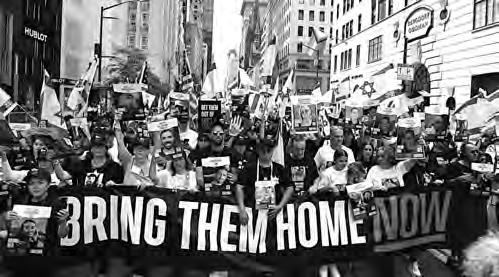
David, as an expression of identity and defiance. “I’m very aware when I am wearing it that I am out there as Jewish, and it’s a little frightening. But it’s important to other Jewish people to see that I’m wearing it,” she said. “And if somebody would start up with me, I’d say, ‘This has nothing to do with what’s going on in Gaza. That’s a whole other conversation. I’m just talking about the hostages and that they need to be released. I’m not getting into a political thing with you.’”
Since Oct. 7, Jews in Israel and the United States have developed an array of symbolic, public and ritual responses to the tragedy in Israel. They include empty “Shabbat table” displays representing the captives, empty chairs in synagogues and at the seder table, pieces of masking tape with the number of days since the hostages were taken and “kidnapped” posters featuring images of the hostages. “Hostages Square” in Tel Aviv has become a pilgrimage site for Israelis as well as American Jews visiting the country.
Coming soon after Oct. 7, said Rabbi Vanessa Ochs, emeritus professor of religious studies at the University of Virginia, these responses “were about solidarity with Israel, and they were saying, ‘My heart aches.’”
As the war ground on, and Israel faced more criticism both at home and abroad, symbols like the dog tags took on new meanings. “They had a quality of ‘I am with Israel no matter what. I will not criticize Israel,’” said Ochs, who is a scholar of new rituals and Jewish material culture. “And for people who are critical of Israel it became a symbol of abdicating your role and responsibility for thinking about the consequences of what Israel is doing right now militarily.”
Ochs said she was given a dog tag by a neighbor, “and I was delighted to have it because my heart was breaking. But I never wore it, because I wasn’t sure what meanings it would have in the different contexts in which I found myself.”
Amanda Berman, executive director of the “unapologetically Zionist” Zioness Movement, understands that to many Israeli activists, freeing the hostages means supporting a ceasefire. But by wearing a dog tag (next to a chai and other Jewish symbols), she’s expressing a different view of what it means to be “political.”
“As an American Jew and as a human being of conscience, I want the war to end. But the question since the afternoon of Oct. 7 has been, what has to happen in order for the war to end? And for me, that pressure should have been on Hamas to release the hostages and to stop shooting rockets and missiles into Israeli population centers and to stop threatening the sovereignty of the Jewish state,” she said. “And the minute that happens, the war will be over.”
Berman’s may not be a pro-war message, but it focuses responsibility on Hamas instead of the Netanyahu government. And it was similar to a message conveyed by a delegation from Kibbutz Be’eri, a southern Israeli community hard hit during the Hamas attacks, that marched in New York’s Israel parade. Or Gat, whose sister Carmel is a hostage and whose mother Kinneret Gat was murdered that day, told JTA that the goal of their 10-day trip to the U.S. was to raise awareness of the hostages and to speak about Hamas, “a terror organization that’s controlling Gaza and is the one that most hurts the Palestinian people.”
That too is a political message, but aimed at the broad goal of shaping public opinion about the war and its aims — a message endorsed by the Israeli government. “I’m wearing a #BringThemHomeNow dog tag in every interview and press conference as a reminder, for myself and the world media, why we’re fighting,” Eylon Levy, at the time an official Israeli gov-
ernment spokesman, tweeted in December.
The We Are All Hostages movement wants more from American Jews, and said in their letter that they are available to speak to Jewish groups to press their case. “Your voices are crucial to saving our family members. Your voices can help end this war. Lives hang in the balance,” they wrote. “Our families hang in the balance. We need you with us.”
Jill Jacobs of T’ruah said her group had come to a similar conclusion earlier in the war. On May 8, it issued a statement urging the Netanyahu government “to make a hostage and cease-fire deal and bring the hostages home.”
She is aware, however, that even as the pro-Israel right abhors such implicit criticism of Israel, the pro-Palestinian left resists empathy for the hostages — and that the “kidnapped” posters were often torn down or covered.
“There’s this idea [on the left] that it’s somehow a contradiction between calling for a ceasefire and saying anything about the hostages,” she said. “I wish that people on the far left in the U.S. understood that a ceasefire and bringing home the hostages are actually the same things. They’re not different sides.”
In Washington, D.C., since shortly after the Hamas attacks, about 100 people gather every Sunday for a “Bring Them Home Now” rally in front of the American Red Cross headquarters. Because they are Israeli Americans — members of the group UnXeptable D.C., formed before the war to protest Netanyahu and his proposed judicial reforms, later pivoting to support Hamas’ victims, aid Israel’s vulnerable populations and advocate for the release of the hostages — the vigil organizers have tried to straddle the line between what the cause means back home and to non-Israeli American Jews.
“At first we were very careful not to be political, and the strongest goal we had was to keep the issue of the hostages in the public eye,” said Vered Guttman, a food writer, one of the rally organizers and a representative of the Hostages and Missing Families Forum in Israel. “After about three months we were starting to be more frustrated with the Israeli government. And as more time passed, it became very clear that it’s a political issue that we could not ignore — or ignore what was happening in Gaza.”
The speakers started to demand that the government sign a deal, and to praise President Joe Biden for talking about the hostages and an endgame to the war in ways that Netanyahu avoided. Most of those attending the vigil are American Jews, who keep returning while occasionally bristling at the politics of some of the speakers.
“We’re kind of gentle,” said Guttman, noting that while UnXeptable speakers will call on the Israeli government to sign a ceasefire deal, they invite guest speakers from across the political spectrum, from Sen. Chris Van Hollen, the Maryland Democrat, a frequent critic of Israel, to Robert Satloff, executive director of the Washington Institute for Near East Policy, which has close ties with Israeli officials.
Such an approach, she said, “makes our tent wider, and it brings a new audience to the discourse.”
The views and opinions expressed in this article are those of the author and do not necessarily reflect the views of JTA or its parent company, 70 Faces Media.
Anti-Israel hostility
Continued from page 8
When Nate first walked through the gates to enter West Hollywood Pride in 1999, it was the first time he felt fully able to be queer, Black and Jewish. When Ethan went to his first Pride at the age of 17, he felt he didn’t need to hide any part of his identity. These experiences set us on the course to lifetimes of both LGBTQ+ and Jewish activism.
We will continue to work closely with elected officials, Pride event organizers, and public safety agencies to ensure that Pride celebrations are welcoming for all and call on all members of the LGBTQ+ community and Jewish community to join us.
Nate Looney has served as the Director of Community Safety and Belonging at Jewish Federations of North America for the past two years. He is a Jew of Color, US Army veteran, diversity strategist, and social entrepreneur with over two decades of communitybuilding experience in diverse communities.
Ethan Felson is executive director of A Wider Bridge, a national organization that provides LGBTQ people the opportunity to engage with Israel in ways that matter to them.
The views and opinions expressed in this article are those of the author and do not necessarily reflect the views of JTA or its parent company, 70 Faces Media.
The Jewish Press | June 21, 2024 | 9
Marchers call for the release of hostages in Gaza at the annual Israel parade in New York City, June 2, 2024. Credit: JCRC-NY
Synagogues
B’NAI ISRAEL SYNAGOGUE
618 Mynster Street Council Bluffs, IA 51503-0766
712.322.4705 www.cblhs.org
BETH EL SYNAGOGUE
Member of United Synagogues of Conservative Judaism 14506 California Street Omaha, NE 68154-1980
402.492.8550 bethel-omaha.org
BETH ISRAEL
SYNAGOGUE
Member of Union of Orthodox Jewish Congregations of America 12604 Pacific Street Omaha, NE. 68154
402.556.6288 BethIsrael@OrthodoxOmaha.org
CHABAD HOUSE
An Affiliate of Chabad-Lubavitch 1866 South 120 Street Omaha, NE 68144-1646
402.330.1800 OChabad.com email: chabad@aol.com
LINCOLN JEWISH COMMUNITY:
B’NAI JESHURUN
South Street Temple
Union for Reform Judaism 2061 South 20th Street Lincoln, NE 68502-2797
402.435.8004 www.southstreettemple.org
OFFUTT AIR
FORCE BASE
Capehart Chapel 2500 Capehart Road Offutt AFB, NE 68123
402.294.6244 email: oafbjsll@icloud.com
TEMPLE ISRAEL
Union for Reform Judaism (URJ) 13111 Sterling Ridge Drive Omaha, NE 68144-1206
402.556.6536 templeisraelomaha.com
LINCOLN JEWISH COMMUNITY:
TIFERETH ISRAEL
Member of United Synagogue of Conservative Judaism 3219 Sheridan Boulevard Lincoln, NE 68502-5236 402.423.8569 tiferethisraellincoln.org
Monthly Speaker Series Service, Friday, July 12, 7:30 p.m. with guest speaker. Our service leader is Larry Blass. Everyone is always welcome at B’nai Israel!
For information about our historic synagogue, please visit our website at www.cblhs.org or contact any of our other board members: Renee Corcoran, Scott Friedman, Rick Katelman, Janie Kulakofsky, Howard Kutler, Carole and Wayne Lainof, Ann Moshman, MaryBeth Muskin, Debbie Salomon and Sissy Silber. Handicap Accessible.
Services conducted by Rabbi Steven Abraham and Hazzan Michael Krausman.
IN-PERSON AND ZOOM MINYAN SCHEDULE:
Mornings on Sundays, 9 a.m.; Mondays and Thursdays, 7 a.m.; Evenings on Sunday-Thursday, 5:30 p.m.
FRIDAY: Kabbalat Shabbat 6 p.m. at Beth El & Live Stream.
SATURDAY: Shabbat Morning Service, 10 a.m. at Beth El & Live Stream; Havdalah 9:45 p.m. Zoom only.
SUNDAY: Morning Minyan, 9 a.m. Zoom Only.
TUESDAY: Mincha/Ma’ariv, 5:30 p.m. followed by Jennifer Kay Memorial Speaker, Dr. Lilliia Cherkasskly.
FRIDAY-June 28: Nebrasksa AIDS Project Lunch, 11:30 a.m.; Kabbalat Shabbat 6 p.m. at Beth El & Live Stream.
SATURDAY-June 29: Shabbat Morning Service 10 a.m. at Beth El & Live Stream; Havdalah, 9:45 p.m. Zoom only.
Please visit bethel-omaha.org for additional information and service links.
FRIDAY: Nach Yomi, 6:45 a.m.; Shacharit, 7 a.m.; Mincha/Kabbalat Shabbat, 7 p.m.; Candlelighting, 8:43 p.m.
SATURDAY: Shabbat Kollel, 8:30 a.m.; Shacharit 9 a.m.; Tot Shabbat, 10:30 a.m.; Youth Class, 10:45 a.m.; Tehillim, 7:15 p.m. at the Ziv’s; Soulful Torah, 7:45 p.m. with Rabbi Geiger; Mincha 8:30 p.m.; Laws of Shabbos/Kids Activity, 9 p.m.; Havdalah, 9:53 p.m.
SUNDAY: Shacharit 9 a.m.; Kinyan 9:40 a.m.; Mincha/Ma’ariv, 8:30 p.m.
MONDAY: Nach Yomi, 6:45 a.m.; Shacharit, 7 a.m.; Mincha/Ma’ariv, 8:30 p.m.
TUESDAY: Nach Yomi, 6:45 a.m.; Shacharit, 7 a.m.; Kinyan 8:10 p.m.; Mincha/Ma’ariv/Candlelighting, 8:30 p.m.
WEDNESDAY: Nach Yomi, 6:45 a.m.; Shacharit, 7 a.m.; Board of Directors Meeting, 7 p.m.; Mincha/ Ma’ariv, 8:30 p.m.
THURSDAY: Nach Yomi, 6:45 a.m.; Shacharit, 7 a.m.; Character Development, 9:30 a.m.; Kinyan, 8:10 p.m.; Mincha/Ma’ariv, 8:30 p.m.; Parsha Class, 9:10
p.m.
FRIDAY-June 28: Nach Yomi, 6:45 a.m.; Shacharit, 7 a.m.; Mincha/Kabbalat Shabbat, 7 p.m.; Candlelighting, 8:43 p.m.
SATURDAY-June 29: Shabbat Kollel, 8:30 a.m.; Shacharit 9 a.m.; Tot Shabbat 10:30 a.m.; Youth Class 10:45 a.m.; Soulful Torah, 7:40 p.m. with Rabbi Geiger; Mincha, 8:30 p.m.; Laws of Shabbos/Kids Activity 9 p.m.; Havdalah, 9:53 p.m. Please visit orthodoxomaha.org for additional information and Zoom service links.
All services are in-person. All classes are being offered in-person and via Zoom (ochabad.com/academy). For more information or to request help, please visit www.ochabad.com or call the office at 402.330.1800.
FRIDAY: Shacharit 8 a.m.; Inspirational Lechayim, 5:45 p.m. with Rabbi and friends: Ochabad.com/ Lechayim; Candlelighting, 8:43 p.m.
SATURDAY: Shacharit 9:30 a.m. followed by Kiddush and Cholent; Shabbat Ends, 9:52 p.m.
SUNDAY: Sunday Morning Wraps: Shacharit, 99:30 a.m., Video Presentation, 9:30 a.m. and Breakfast, 9:45 a.m.; Torah and Tea, 10:30-11:15 a.m.
MONDAY: Shacharit 8 a.m.; Personal Parsha, 9:30 a.m.; Intermediate Biblical Hebrew Grammar, 10:30 a.m. with Prof. David Cohen; Parsha Reading, 6 p.m. with Prof. David Cohen.
TUESDAY: Shacharit, 8 a.m.; Intermediate Biblical Hebrew Grammar, 6 p.m. with Prof. David Cohen; Introductory Biblical Hebrew Grammar, 7 p.m. with Prof. David Cohen.
WEDNESDAY: Shacharit 8 a.m.; Mystical Thinking (Tanya), 9:30 a.m.; Introductory Biblical Hebrew Grammar, 10:30 a.m. with Prof. David Cohen; Parsha Reading, 11:30 a.m. with Prof. David Cohen.
THURSDAY: Shacharit, 8 a.m.; Introduction to Alaphabet, Vowels & Reading Hebrew, 10 a.m. with Prof. David Cohen; Advanced Biblical Hebrew Grammar, 11 a.m. with Prof. David Cohen; Talmud Study (Sanhedrin 34), noon; Introduction to Alphabet, Vowels & Reading Hebrew, 6 p.m. with Prof. David Cohen; Kitzur Shulchan Aruch (Code of Jewish Law) Class, 7 p.m.
FRIDAY-June 28: Shacharit 8 a.m.; Inspirational Lechayim, 5:45 p.m. with Rabbi and friends: Ochaba d.com/Lechayim; Candlelighting, 8:43 p.m.
SATURDAY-June 29: Shacharit, 9:30 a.m. followed by Kiddush and Cholent; Shabbat Ends, 9:52 p.m.
LINCOLN JEWISH COMMUNITY: B’NAI JESHURUN & TIFERETH ISRAEL
Services facilitated by Rabbi Alex Felch. All services offered in-person with live-stream or teleconferencing options.
FRIDAY: Erev Shabbat Service with Rabbi Alex, 6:30-7:30 p.m. at SST; Shabbat Candlelighting, 8:43
p.m.
SATURDAY: Shabbat Morning Service, 9:30-11 a.m. at TI; Torah Study, noon on Parashat Behaalotecha via Zoom; Havdalah, 9:53 p.m.
SUNDAY: Men’s Bike/Coffee Group, 10:30 a.m. at The Mill on the Innovation Campus. For more information or questions please email Al Weiss at albertw801@gmail.com; Pickleball, 3-5 p.m. Anyone interested in playing or learning how to play can text Miriam at 402.470.2393. If there are enough interested people; we will play in the Social Hall at TI.
TUESDAY: Ladies' Lunch 1 p.m. at Hacienda Real, South Pointe. If you'd like more information or would like to be added to the group, email Barbara Barron at oohhmmm.barb@gmail.com.
FRIDAY-June 28: Erev Shabbat Service with Rabbi Alex, 6:30-7:30 p.m. at SST; Shabbat Candlelighting, 8:44 p.m.
SATURDAY-June 29: Shabbat Morning Service, 9:30-11 a.m. at TI; Torah Study noon on Parashat Shlach via Zoom; Havdalah, 9:53 p.m.
FRIDAYS: Virtual Shabbat Service, 7:30 p.m. every first and third of the month at Capehart Chapel. Contact TSgt Jason Rife at OAFBJSLL@icloud.com for more information.
In-person and virtual services conducted by Rabbi Benjamin Sharff, Rabbi Deana Sussman Berezin, and Cantor Joanna Alexander
FRIDAY: Drop in Mah Jongg, 9-11 a.m. In-Person; Shabbat B’yachad Service, 6 p.m. In-Person & Zoom.
SATURDAY: Torah Study, 9:15 a.m. In-Person & Zoom; Shabbat Morning Service, 10:30 a.m. In-Person & Zoom.
TUESDAY: Adult Prayer Hebrew: Level Aleph, 6 p.m. In-Person.
WEDNESDAY: Yarn It, 9 a.m.; Exploring the Holocaust: Perspectives of Persecution, 7 p.m. In-Person.
THURSDAY: The Zohar: Thursday Morning Class 11 a.m. with Rabbi Sharff and Rabbi Azriel — In-Person & Zoom.
FRIDAY-June 28: Drop in Mah Jongg, 9-11 a.m. InPerson; Shabbat B’yachad Service, 6 p.m. In-Person & Zoom.
SATURDAY-June 29: Torah Study, 9:15 a.m. In-Person & Zoom; Shabbat Morning Service, 10:30 a.m. InPerson & Zoom.
Please visit templeisraelomaha.com for additional information and Zoom service links.
JEWISH PRESS NOTICE
The Jewish Press will be closed on Thursday, July 4 for Independence Day. The deadline for the July 12 issue is Tuesday, July 2, 9 a.m. There will be no Jewish Press on July 5, 2024. Questions? Call 402.334.6448.
Bestseller Who is Taylor Swift? comes out with its first international edition — in Israel
SHIRA LI BARTOV
Taylor Swift’s detachment from contentious global conflicts is a hallmark of her superstardom. For fans in Israel, it’s also a selling point.
Michal Paz-Klapp, the Young Adult editor at Israel’s Modan Publishing House, snatched the opportunity to publish a Hebrew-language edition of Who Is Taylor Swift?, by Kirsten Anderson. The children’s book came out in April as part of Penguin Workshop’s bestselling Who Was? and Who Is? series, a range of illustrated biographies chronicling public figures.
The Hebrew version of Who Is Taylor Swift? hit Israeli bookstores recently, making it the book’s first international edition.
While Swift’s popularity knows no borders, one non-musical choice has recently added to her appeal in Israel, said Paz-Klapp — her abstention from speaking about the Israel-Hamas war. Her Israeli listeners are well-aware of their growing isolation on the world stage as public opinion turns against Israel’s eight-month war, which has ravaged Gaza with a humanitarian crisis and a death toll over 37,000. Simply saying nothing about it has won Swift points with Israeli fans, many of whom view
her music as an escape from the trauma of the Oct. 7 Hamas attacks that launched the war and the surging global censure of Israel. “Part of the love that Taylor is receiving is that she’s — I don’t know if she supports Israel, actively — but she is not against Israel, and this is really important for the Israeli crowd, I think,” Paz-Klapp told the Jewish Telegraphic Agency.
Other fans around the world have denounced the pop star’s silence. Thousands flooded X with the hashtag #SwiftiesForPalestine in May, demanding she take a stand after Israel struck the southern Gaza city of Rafah. Some fans have attended her worldwide Eras Tour with Palestinian flags and signs reading Speak Now, a reference to her 2010 hit album.
Swift was also among hundreds of celebrities targeted by a social media campaign called “Blockout 2024,” aimed at blocking artists and influencers who have not made public statements in support of Gaza. Selena Gomez, Drake, Justin Bieber, Zendaya and the Kardashian family were other household names on the “digital guillotine” lists.
While abortion rights and matters concerning the LGBTQ community may divide the U.S. elec-
torate, they are less contentious within Swift’s fan base, which skews toward Democratic, millennial and Gen Z white women. The Israel-Hamas war is a more divisive issue among these voters.
Swift’s avoidance of the subject has allowed Israelis to assign their own meanings to her music. Bigger Than the Whole Sky, a song from Swift’s 2022 Midnights album about saying goodbye to someone, has become an anthem for friends of Roni Eshel, a 19-year-old Israeli soldier and fan of Swift who was killed by Hamas on Oct. 7. Eshel’s friends petitioned Swift to intervene on her behalf last fall, before Eshel’s death was confirmed.
“When Swifties go to shows, they make bracelets and give them to other fans from all over the world,” said Paz-Klapp. “So in Israel, they prepared Roni Eshel bracelets and they have given them to other fans.”
Swift has not performed in Israel — its small size and geographic isolation mean relatively few top acts make it a stop on their tours. But Israeli fans have been flying to Europe for her shows there, with a Facebook group just for ticket resales and travel coordination drawing nearly 4,000 participants.
10 | The Jewish Press | June 21, 2024
B’NAI ISRAEL
BETH EL
BETH ISRAEL
CHABAD HOUSE
OFFUTT
AIR FORCE BASE
TEMPLE ISRAEL
Life cycles
TERRILL AVA SHERMAN
Terrill Ava Sherman passed away on Feb. 19, 2024, at age 81 in New River, Arizona.
She was preceded in death by her parents, Joe and Sylvia Greenstone.
She is survived by her husband of almost 60 years, Jerry Sherman; three sons: Richard (Michelle), Jeff (rungphut of Thailand), and Jason (Amy); grandchildren: Michael, Jaden, Evan, and Ryan; two brothers: Todd Greenstone and Brad Greenstone.
She was born and raised in Omaha and graduated from Omaha Central High School. Terrill was a homemaker. She and Jerry moved to Arizona in 1985.
Memorial may be made to the Rose Blumkin Jewish Home.
KAYE TURNER
Kaye Turner passed away on June 9, 2024 in New York. Services were held on June 14, 2024, at Beth El Cemetery and were officiated by Rabbi Abraham.
She was preceded in death by her father, Nathan Turner; her mother, Ruth Turner (née Kaplan); her brother, Jerome Turner; and her sister, Judith Ginsburg.
She is survived by nieces, Suzanne Turner (David Schulman) and Nicole Small (Justin); her nephews, K. Robert Turner (Lau-
ren), Jonathan Turner (Anne), and Scott Ginsburg (Jamie); and many great-nieces and great-nephews who will continue to honor her memory.
Kaye was born and raised in Omaha, Nebraska, she graduated from the University of Nebraska at Omaha before embarking on a new chapter in New York City in her early twenties. She dedicated her professional life to the airline industry, working for Air Canada until her retirement.
Kaye epitomized the spirit of New York, cultivating a diverse and vibrant community of friends. Known for her generosity and hospitality, she frequently hosted family and friends, creating cherished memories for all who knew her. An avid traveler, Kaye explored the world with a sense of adventure, and she had a passion for reading and shopping. Kaye marked every holiday (her chocolate dreidels at Channukah were eagerly anticipated) and she never forgot a birthday of her beloved family members.
While Kaye lived in New York, she was known for keeping extremely close ties with family and friends in Omaha. She had an incredible memory and was always happy to share stories across many generations in Omaha and beyond.
Memorials may be made to Hadassah International and the Beth El Synagogue Lucy White Kitchen Fund.
US slaps sanctions on Israeli group Tsav nine
The Biden administration imposed sanctions Friday on an Israeli group for attacking humanitarian aid convoys destined for Palestinian civilians in Gaza, in the latest round of penalties against far-right Israelis accused by Washington of undermining efforts toward peace and stability.
The group added to the U.S. sanctions list is Tsav 9, which says aid should be stopped because it ends up in the hands of Hamas — a view shared by a majority of Israelis.
For months, Tsav 9 activists have organized to block convoys, harass aid workers and damage aid trucks as well as goods meant to alleviate pervasive hunger and suffering in Gaza. The group’s name means Order 9 in Hebrew, a reference to the military’s order calling up reservists.
The announcement by the State Department of the financial restrictions labels Tsav 9 a “violent extremist” group and cites a May 13 incident in which activists looted and then set fire to two trucks in the West Bank carrying aid bound for Gaza. Tsav 9 released a statement defending itself as a legitimate protest group.
“The effort to prevent a rightful democratic nonviolent protest in order to keep supplying Hamas with aid during the war goes against any American and liberal values,” the statement says. “Much of the aid transferred to Gaza falls directly into the hands of the terrorist organization Hamas, which massacred, murdered, and raped hundreds of women, elderly, and children (including American citizens), rather than going to the Gazan civilians.”
The State Department called on Israel to protect the convoys from attacks and ensure their passage to Gaza.
“We will not tolerate acts of sabotage and violence targeting this essential humanitarian assistance,” the announcement from the State Department says. “We will continue to use all tools at our disposal to promote accountability for those who attempt or undertake such heinous acts, and we expect and urge that Israeli authorities do the same.”

Announcements of sanctions on Israelis began in February following an executive order signed by President Joe Biden aiming to stem rising violence between Israelis and Palestinians in the West Bank.
Before targeting Tsav 9, the United States imposed sanctions on several Israeli settlers involved in attacks against Palestinians as well as organizations involved in supporting extremists.
Financial institutions under U.S. jurisdiction are required to freeze assets belonging to sanctioned groups and individuals, and American citizens are prohibited from aiding them.




ANNOUNCEMENT
HELLO NEBRASKA! Introducing www.nepublicnotices.com, a new public notice website presented as a public service by all Nebraska newspapers. Free access, fully searchable – because democracy depends upon open government and your right to know.
ATTENTION ADVERTISERS! For $225/25 word classified you can advertise in over 150 Nebraska newspapers. For more information contact Jewish Press or call 1-800-369-2850.
AFFORDABLE PRESS Release service. Send your message to 155 newspapers across Nebraska for one low price! Call 1-800369-2850 or www.nebpress.com for more details.
FORSALE-SENIORS
SAFE STEP. North America s #1 Walk-In Tub. Comprehensive lifetime warranty. Top-of-the-line installation and service. Now featuring our FREE shower package and $1600 Off for a limited time! Call today! Financing available. Call Safe Step 1-877-9330188.
PORTABLE OXYGEN Concentrator? May be covered by Medicare! Reclaim independence and mobility with the compact design and long-lasting battery of Inogen One. Free information kit! Call 855-385-3580.
GUNSHOW
GUN SHOW: June 21-23, 2024, Westfair Council Bluffs, IA Fri 49pm, Sat. 9am-5pm, Sun. 9am-3pm. $10 (under 14 FREE). More info: 563-608-4401 www.marvkrauspromotions.net.
HELPWANTED
CRITICAL ACCESS hospital in southwest Nebraska needing a Radiologic Technologist. Must be state and ARRT certified. Day shift with rotating call. Generous PTO package, paid employee BCBS, many other valuable benefits. Visit dchbenkelman.com/ careers. Call 308-423-7009. Email kjessee@dchbenkelman.com.
HOMESERVICES
DOES YOUR basement or crawl space need some attention? Call Thrasher Foundation Repair! A permanent solution for waterproofing, failing foundations, sinking concrete and nasty crawl spaces. FREE Inspection & Same Day Estimate. $250 off ANY project with code GET250. Call 1-844-958-3431.
PETS/LIVESTOCK
WHEN VETERINARY care is unavailable or unaffordable, ask for Happy Jack® animal healthcare products for cats, dogs, & horses. At Tractor Supply®. (www.happyjackinc.com).
BECOME A Published Author. We want to Read Your Book! Dorrance Publishing-Trusted by Authors Since 1920 Book manuscript submissions currently being reviewed. Comprehensive Services: Consultation, Production, Promotion and Distribution Call for Your Free Author’s Guide 1-877-858-2822 or visit dorran ceinfo.com/Nebraska. The Jewish Press | June 21, 2024 | 11 NEBRASKA STATEWIDE CLASSIFIEDS
SERVICES-PUBLISHING
IN MEMORIAM Over 60 Years Experience With Jewish Lettering and Memorials 1439 So. 13th 402-341-2452 Family Owned and Operated Pulverente MONUMENT CO. ROOFING SIDING GUTTERS
ASAF ELIA-SHALEV

CORNCHOWDER
From: JOE GOLDSTEIN
This is a favorite. Quick, easy, and it tastes great!
Ingredients:
4 Tbsp. butter
1 medium onion, chopped
1 red pepper, chopped
3 ribs celery, chopped
1/3 cup flour
3 cans corn, undrained
2.5 cans chicken broth (14.5 oz. can)
1.5 cup heavy cream
1 tsp. thyme
Cream of Carrot Soup with Fragrant Indian Spices
Directions: In soup pot, melt butter and sauté the onion, celery and peppers until soft. Stir in flour and cook for 1 minute. Add corn, broth, cream, bay leaf and thyme. Cover and bring to a boil, then uncover and reduce heat to low. Simmer 30 minutes. Remove bay leaf and serve. Cooking time: 30 minutes.

ALLY
An easy and delicious soup!

Ingredients:
1/4 cup (1/2 stick) unsalted butter
1 cup finely chopped large onion
1 Tbsp. dark brown sugar
1 Tbsp. curry powder
1/2 tsp. ground coriander
1/4 tsp. ground cardamom
1/8 tsp. freshly grated nutmeg
2 tsp. finely chopped, pared fresh ginger root
1 pound carrots, peeled and thinly sliced
2 medium potatoes (8oz. each) peeled and sliced
7 cups chicken stock or broth
1 cup heavy cream (or 2% milk)
Salt and freshly ground black pepper, to taste
Tiny fresh coriander or mint leaves for garnish
Directions:
Melt butter in large heavy pot over low heat. Add the onion and cook until soft and lightly browned, about 7 minutes. Stir in dark brown sugar, curry powder, coriander, cardamom, grated nutmeg and ginger root. Cook a minute longer.
Stir in carrots, potatoes and chicken stock. Bring to boiling, lower heat and simmer 30 minutes or until the carrots are very tender. Strain the soup, reserving the liquids and solids separately. Place solids in food processor or blender. Cover and whirl until pureed, then whisk puree into liquid and return to pot. (The soup can be made ahead up to this point and frozen)
Add cream, simmer for 10 minutes and season with salt and pepper to taste. Serve hot, garnished with coriander or mint leaves. For a lighter soup, omit the cream.



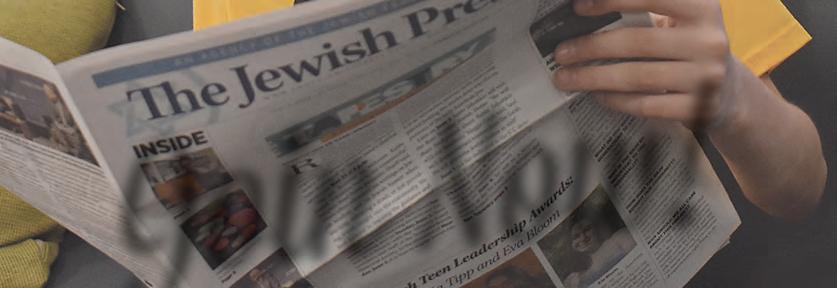
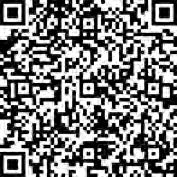
12 | The Jewish Press | June 21, 2024 Food BOOKS | RECIPES | STORIES Club Giving Levels Preserve the Jewish Press for the next generation Reporterup to $36 Editor$37-180 Publisher$181-360 Gold Sponsor$500 The Jewish Press Join Now Name _______________________ Address _______________________ City State | Zip Phone Email Send check to: The Jewish Press 333 S. 132 St. Omaha, NE 68154 or scan the QR code to make your donation today! Club The Jewish Press Join Now! Shirley’s
Kitchen
From:
MILDER
Credit: Austin Matherne, licensed under the Creative Commons Attribution 2.0 Generic license.
Alike
International
Credit: MadMona, licensed under the Creative Commons Attribution-Share
4.0
license.







































































































